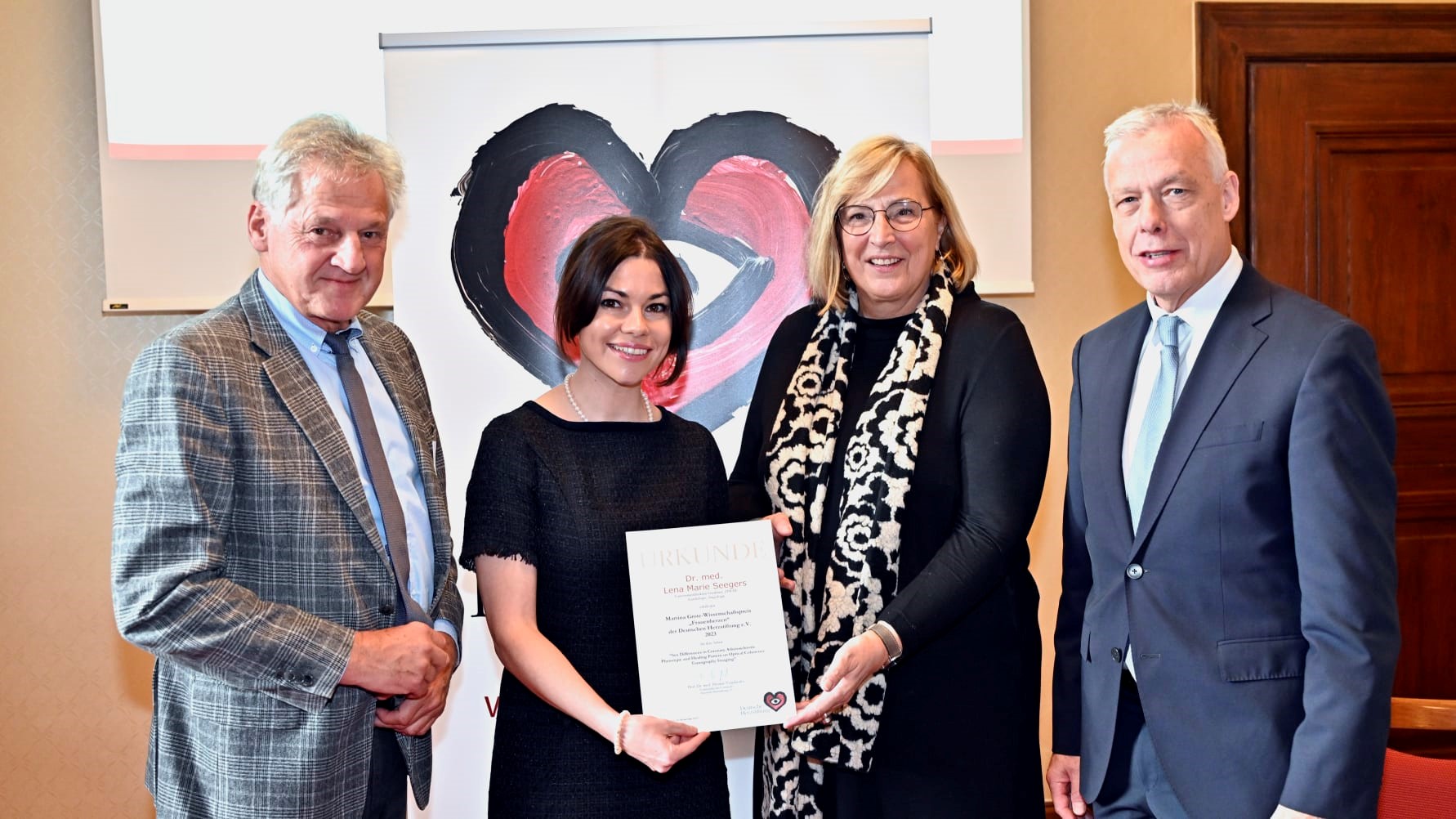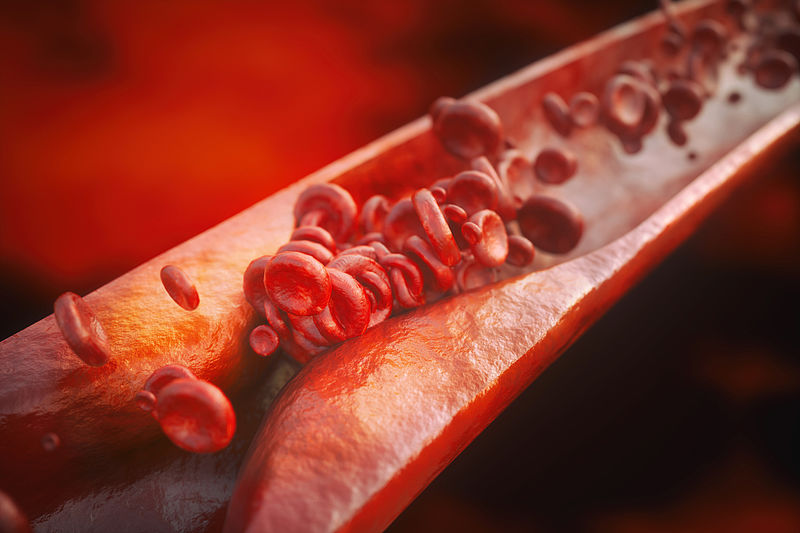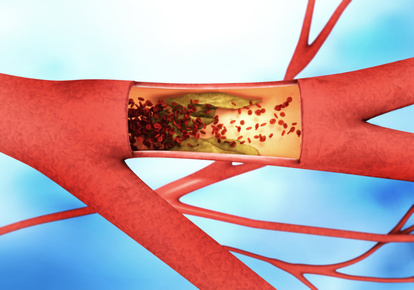Cardiovascular diseases are still one of the main causes of death worldwide. It is now known that there are clear differences between men and women. For example, studies have shown gender-specific differences in the appearance of heart disease, which is associated with circulatory disorders and can lead to acute (myocardial infarction) or chronic coronary syndrome (stable coronary heart disease, CHD). It is always triggered by deposits in the coronary arteries, coronary atherosclerosis - in both sexes. However, there are detailed differences in the characteristics of these deposits of blood lipids, blood clots and calcium, known as plaques. The research work of Dr Lena Marie Seegers has made an important contribution to understanding these differences and thus perhaps also to being able to offer better individual treatment in future.
The doctor in the Medical Clinic 3: Cardiology, Angiology at the University Hospital Frankfurt (UKF) has investigated gender-specific differences in atherosclerotic plaques using optical coherence tomography (OCT) at the Cardiology Laboratory for Integrative Physiology and Imaging (Prof Ik-Kyung Jang, MD, PhD) at Massachusetts General Hospital of Harvard Medical School in Boston (MA, USA) with the help of a grant from the German Research Foundation. Evidence was found that the progression of deposits appears to be different in women than in men and that the mechanisms that can stabilise atherosclerotic plaques also differ. She has been awarded the Martina Grote Science Prize "Women's Hearts" for these new findings. Her work was also recently published in the renowned journal "Circulation: Cardiovascular Imaging" (1). The work of Dr. Seegers, who is currently head of the Women's Heart Health Center Frankfurt (WHHC) at the UKF, which was founded in 2023, was evaluated and selected by an independent panel of experts from a total of 13 scientific applications submitted.
"The findings from this research are an important building block in our understanding of coronary heart disease and the underlying deposition processes," emphasises cardiologist Prof. Dr. Thomas Voigtländer, Chairman of the Board of the German Heart Foundation. Around one in three men and one in five women over the age of 70 suffer from coronary heart disease, which claims over 120,000 lives every year and leads to 550,000 hospital admissions in Germany. Martina Grote, founder and namesake of the prize, adds: "Ms Seegers' work shows once again that there are clearly important differences between men's and women's hearts that are relevant for treatment, and it is an important step towards finding gender-specific treatment methods for atherosclerosis in the long term." The prize of 10,000 euros was presented to Dr Lena Marie Seegers in Frankfurt by the German Heart Foundation.
Original publication: Sex Differences in Coronary Atherosclerotic Phenotype and Healing Pattern on Optical Coherence Tomography Imaging (Seegers et al., 2023)
Source: press release of the Deutsche Herzstiftung (in German only)



